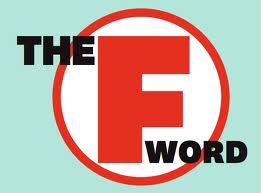
I don't know about you, but when my marriage was ending the word forgiveness sounded like a dirty word. The very suggestion of forgiveness made me bristle with anger and I equated forgiveness with absolution.
As a psychologist I knew the basic tenants of forgiveness.
It's the key to emotional freedom.
It's more for the self than the other.
It doesn't condone or pardon the malicious acts.
Even though I knew all this intellectually, the only word coming out of my mouth beginning with F...well you get the picture.
I strongly felt that if I forgave my Ex that I would be absolving him from all his wrong doings, and I believed that my anger was the only thing holding him accountable.
As long as I held him in purgatory, justice was served, and I was able to feel vindicated.
As I continued my healing journey, I came to realize that there are two different kinds of forgiveness.
First, there is easy forgiveness. This is the kind of forgiveness where you say you forgive someone, but you really don't. It sounds right, and it seems like it will make you (and everyone else) feel better, but it's not the forgiveness that truly heals the heart and the pain.
The second kind of forgiveness is authentic forgiveness. This kind of forgiveness comes from a place of choice and clarity. You know when you are ready for this type of forgiveness because it becomes very clear that the negative feelings you are holding don't serve you anymore.
What I ultimately came to realize is that forgiveness is a conscious choice, and it's a very personal and silent decision. No one can tell you that you "should forgive", and only you know when and if you will ever decide to forgive.
As a result of my own process working through the entangled perceptions and feelings around forgiveness, I have come up with four truths about this complicated concept that might help you find your own way through or around it.
Forgiveness is personal
Forgiveness is a sacred and holy gift that you can savor for very special people and circumstances. Don't throw it around with other self-help concepts like "authenticity" or "self-esteem". Forgiveness is a very powerful and profound process that can invoke feelings of strength and satisfaction when it is done with earnestness.
Forgiveness isn't the issue
Avoid getting hung up on whether you should forgive or not forgive. What's important is for you to understand what sits beneath the resistance to this very idea. If you are feeling angry and vengeful, that's understandable, but acknowledge that this is the case. Saying "I'll never forgive" is just another way of saying "I'm angry and hurt". Just be honest with yourself, and own what is really going on.
Forgiveness is just a word
Forgiveness is perceived like it's some major process that we have to go through. Forgiveness is an action or something you grant to another person. It's kind of like a blessing or a prayer. Forget about the word, and focus on living your life as a forgiving person. Develop an attitude, a philosophy or way of being in the world with regard to forgiveness. You can still be forgiving and not forgive.
Forgiveness isn't time sensitive
Whether you decide to forgive today, tomorrow, 10 years from now or never, the results will be the same. You will hear that you need to forgive as soon as possible, but it's more damaging to forgive prematurely or inauthentically. Take your time, do it right, and don't get sucked into the "should" of forgiveness.